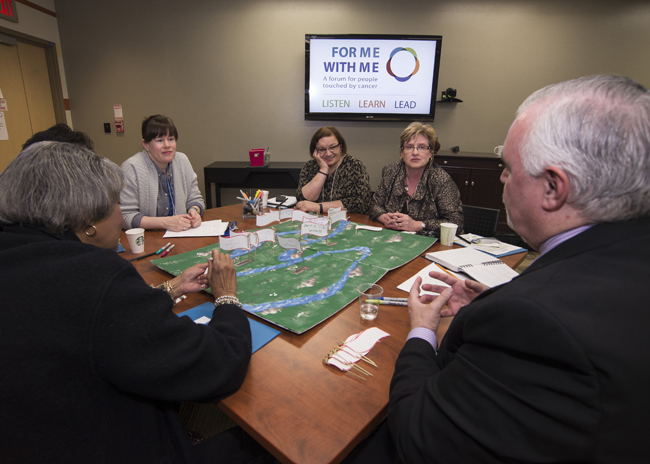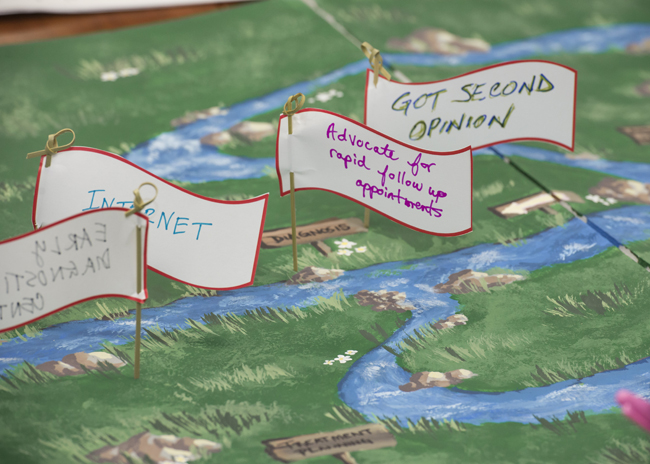Editor’s note: On May 9, ELLICSR hosted For Me With Me: A Forum for People Affected by Cancer. We invited people who’ve been impacted by cancer to come share their experience, learn from others what helped them, and work with us to begin to revolutionize the cancer experience. Late in the morning, we broke into smaller groups to share experiences and build a toolkit to help others. ELLICSR bloggers sat in on each session. Here’s what they experienced.
Who knew that finding support services in your community could be such a challenge? It really takes energy and persistence to navigate the cancer support system and to find the support and care you want. At least this is what I heard during the breakout session “Accessing hospital and community services” at For Me With Me.
I was fortunate to learn directly from some very informed and engaged survivors what it means to advocate for yourself. While challenging, the participants in the group agreed that persistence pays off. One participant made a mantra to help him focus the time he spent looking for the information and support – “Do it; dump it; or delegate it.” Following this simple rule, he pursued the services he needed and wanted, pushed aside those that weren’t useful at the time or asked someone else to help him out when he couldn’t do it alone.

As a whole, the group praised the services they found through their searching. The support and information was valuable and useful, and really help eased the stress they were going through. The biggest hurdle was finding out about support services they needed at the time they wanted it. They said, resources like
ELLICSR,
Wellspring,
Look Good Feel Better,
HEALTh, the
Princess Margaret Lodge,
social workers, etc. should not be “hidden” or overlooked. These services are exceptionally valuable, and patients and family members should know about them. On a canvas, they mapped out the services that helped them and when in
the cancer journey. This was easier said than done. Many in the group felt it is preferable to hear about the support and information available right at diagnosis. Others were quick to point out that the time of diagnosis is overwhelming and getting all the information at once might not be the right for everyone.

Without exception, the participants agreed that healthcare teams play a key role in giving information. Patients look to the professionals to tell them about the services offered within the hospital and the community – the sooner, the better. But this doesn’t always happen and that is currently an unfortunate reality of the entire healthcare system.
So, what was the advice of the people in the breakout session?
- Ask questions.
- Be aware.
- Find out what is out there.
- Tell your healthcare team what helped you so they can pass it on to others.
For Me With Me showed that together we (patients, families and professionals) can find the information and support that we need when we need it, but it takes all of us working together.
